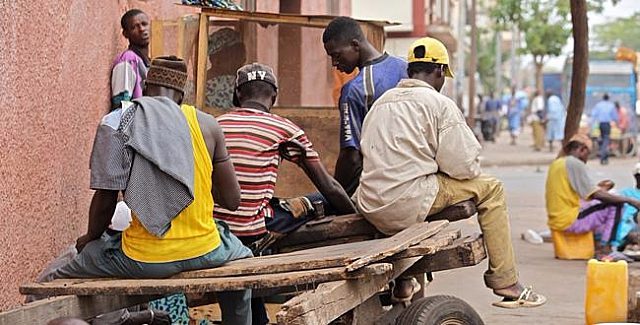About 1.8 million persons in Ghana from 15 to 24 years are not in education, employment or in any form of training.
This is captured in the quarterly food insecurity, multidimensional poverty, and labour statistics report for the first and second quarters released on September 1, 2022 by the Ghana Statistical Service in Accra.
The 1.8 million persons from 15 to 24 years who are not in education, employment or training (NEET) represents 28.8 percent of the youth population.
Government statistician, Professor Samuel Kobina Annim, noted the survey among other things looked at the characteristics of these youth and hoped will influence policy.
“Savannah Region has the highest percent of triple burdened persons representing 8.2 percent which is more than twice the national average of 3.2 percent”, Professor Annim noted.
About 390,000 persons 15 years and older unemployed in quarter 1 remained unemployed in quarter 2 of 2022.
Between the first and second quarters of 2022, about 445,000 persons, 15 years and older outside the labour force joined the number of unemployed persons.
Close to 850,000 persons 15 years and older employed in quarter 1 transitioned to unemployment status in quarter 2 while more than 500,000 unemployed persons gained employment over the same period.
About 380,000 persons in the labour force 15 years and older representing 3.2 percent are triple burdened, meaning they are food insecure, multidimensionality poor and unemployed.
Chair of the report release event and Senior Advisor to the Vice President, Professor Kwaku Appiah-Adu, commended the Ghana Statistical Service for conducting the AHIES which is generating timely and relevant data for policy and planning.
“As a country, we have great challenges and great opportunities. I am in no doubt that the comprehensive quarterly labour force, food insecurity and multi-dimensional poverty report obtained will support Government in evidence-based decision-making and policy design of its programmes and projects for development and a more robust outlook of the Ghanaian economy”, he said.
The primary objective of annual household income and expenditure is to improve the measurement of the country’s gross domestic product.
By Eben Agyekum-Boateng|TV3|3news.com|Ghana


